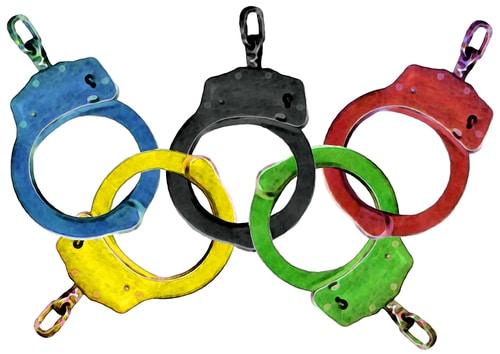
 Like some of the athletes it will host this summer, London 2012’s upcoming Olympic Games is exerting itself and sweating hard, to ensure its teammates in Big Media can win out.
Like some of the athletes it will host this summer, London 2012’s upcoming Olympic Games is exerting itself and sweating hard, to ensure its teammates in Big Media can win out.
According to tickets’ entry terms for event spectators:
“Images, video and sound recordings of the Games taken by a Ticket Holder cannot be used for any purpose other than for private and domestic purposes and a Ticket Holder may not license, broadcast or publish video and/or sound recordings, including on social networking websites and the Internet more generally.”
Athletes, too, are prohibited from taking still photos, video or audio for anything but personal use, according to guidelines which date back to 2010.
It may seem incongruous for the emerging social media generation, but the IOC wants to protect the broadcast rights won by license holders including NBC, which is paying $4.38 billion for exclusive U.S. coverage of four Olympic Games.
And it also wants to ensure the hundreds of accredited journalists who will descend on London get their money’s worth, retaining their historic role as documenters-in-chief. The committee’s guidelines for athletes warn them off overlapping media, too:
“It is acceptable for a participant or any other accredited person to do a personal posting, blog or tweet. However, any such postings, blogs or tweets must be in a first-person, diary-type format and should not be in the role of a journalist.”
In a world where lines between consumers and producers have blurred, the Olympics is relying on familiar old lines of demarcation to safeguard the Olympics as we know it, bankrolled by large broadcast deals and massive sponsorship arrangements.
But that doesn’t mean the Olympics is trying to smother social media entirely…
- It has launched its own Athletes’ Hub to aggregate tweets and Facebook status updates from over 1,000 participating athletes.
- And, showing it does want fans to post some photos, the tournament has launched a web contest called ICopyU (ironic, given the broadcast copyright concerns) that encourages viewers to mimic famous athletes’ poses.
Will this officially-mandated social media strategy win out over the threat of crowd-produced content? The IOC says it “will continue to monitor Olympic on-line content”.
But even the tournament appears resigned to losing some control. The chairman of local Olympic delivery agency Locog, Keith Mills, tells BBC News:
“Media rights are sold – can we police everything these days? Absolutely not, the internet has changed the world and we’re not going to be silly.
“But the reality is that we live in an internet world where Facebook downloads and uploads are happening every day of the week and there’s not much we can do about it.”
Photo courtesy of Shutterstock user [anbibyte].